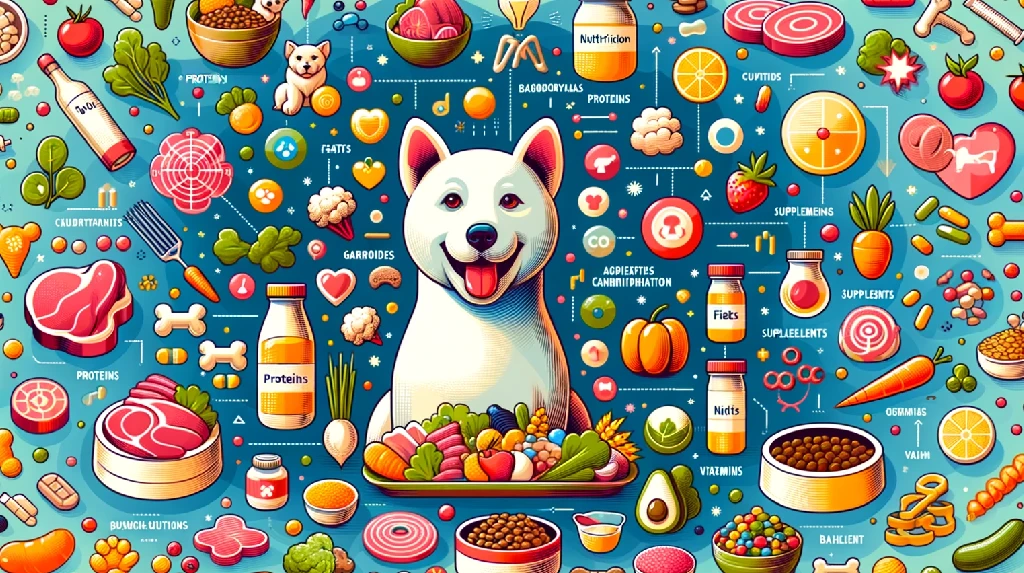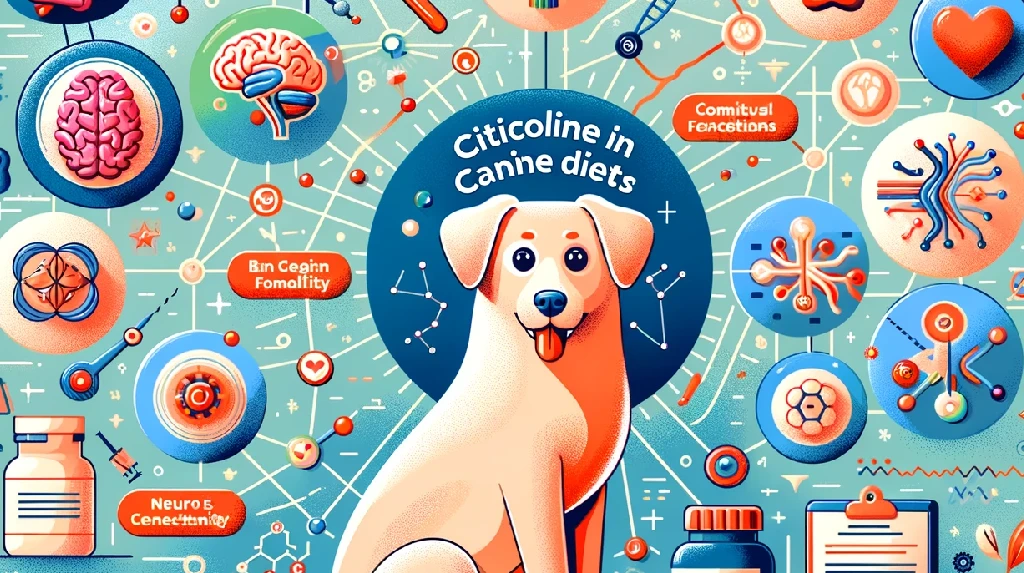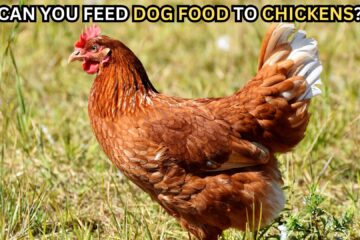As pet parents increasingly focus on the nutritional needs of their dogs, the ingredients in dog food have come under closer scrutiny. In the United States, where Ollie is a well-known brand in the pet food industry, pet owners are more vigilant than ever about what goes into their furry friends’ meals.

Among the ingredients gaining attention is citicoline, a substance known for its potential health benefits. This article aims to address a key question that resonates with many conscientious dog owners: Does Ollie dog food contain citicoline?
We’ll explore this query, delve into the significance of citicoline in canine diets, and provide insights to help you make informed choices about your dog’s nutrition.
Does Ollie Dog Food Contain Citicoline?
To answer the question directly: As of the latest product information and ingredient lists available, Ollie dog food does not contain citicoline. Ollie’s recipes are formulated with a focus on whole, natural ingredients and do not include citicoline as a specific component.
However, it’s important for pet owners to understand the broader context of dog food ingredients and how they contribute to a dog’s overall health and well-being.
Understanding Dog Nutrition and Health

The Role of Key Ingredients in Dog Food
Understanding dog nutrition begins with a deep dive into the ingredients that make up dog food. Each ingredient plays a vital role in ensuring a balanced diet for canines.
- Proteins: Proteins are fundamental for muscle growth and repair. High-quality sources like chicken, beef, or fish provide essential amino acids.
- Carbohydrates: Often sourced from grains or legumes, carbohydrates provide energy. They should be easily digestible to avoid gastrointestinal issues.
- Fats: Fats are crucial for energy, skin health, and the absorption of fat-soluble vitamins. Omega-3 and Omega-6 fatty acids, found in ingredients like fish oil, are particularly beneficial for coat health.
- Vitamins and Minerals: These are essential for various body functions. For instance, calcium and phosphorus support bone health, while vitamins A and E boost immune health.
- Fiber: Fiber aids in digestion and helps maintain bowel health. Sources include vegetables like sweet potatoes and pumpkin.
Special Ingredients for Canine Health
The trend in canine nutrition is increasingly focusing on ingredients that target specific health needs:
- Omega Fatty Acids: These are vital for joint health, brain function, and reducing inflammation. Sources include fish oils and flaxseeds.
- Glucosamine and Chondroitin: Often derived from shellfish, these components support joint health, particularly beneficial for older dogs or breeds prone to joint issues.
- Probiotics: These beneficial bacteria aid in maintaining gut health, improving digestion, and boosting the immune system.
Citicoline in Canine Diets

Citicoline, a compound known to support cognitive function and nerve health, although not commonly found in dog foods like Ollie, has its potential benefits:
- Cognitive Support: Studies have shown that citicoline can enhance memory and cognitive function in dogs, especially aging pets.
- Nerve Function: Citicoline aids in the synthesis of phosphatidylcholine, vital for brain and nerve function.
Alternatives to Citicoline in Dog Nutrition
While citicoline may not be present in many dog foods, several other ingredients can offer similar benefits:
- Antioxidants like Vitamin E and C: These combat oxidative stress and support brain health.
- DHA (Docosahexaenoic Acid): Found in fish oils, DHA is crucial for brain and eye development.
Choosing the Right Dog Food
Understanding dog food labels is key to choosing the right product:
- Look for Whole Food Ingredients: The first few ingredients should be recognizable foods, such as whole meats and vegetables.
- Check for By-Products and Fillers: Lower quality foods often contain by-products, fillers, or artificial preservatives.
- Understand Nutritional Adequacy Statement: This statement ensures that the food meets specific nutritional standards.
Consulting with Veterinarians
Selecting the right dog food, especially for pets with specific health needs, should involve a veterinarian:
- Individual Needs Assessment: Every dog is unique; a vet can help assess specific dietary needs based on health, age, breed, and activity level.
- Medical Conditions: Dogs with medical conditions like allergies, obesity, or diabetes may require specialized diets which a vet can recommend.
Conclusion:
While Ollie dog food does not contain citicoline, this reflects their commitment to a specific nutritional approach rather than an oversight in canine health needs.
Understanding the components of dog food and their impact on your pet’s health is crucial for all dog owners. By choosing a diet that aligns with your dog’s individual needs and consulting with veterinary professionals, you can ensure that your dog receives the best possible nutrition.
Remember, the key to a healthy dog lies not just in a single ingredient but in a well-rounded, balanced diet.
Read also:



0 Comments